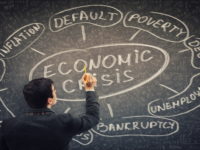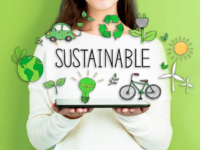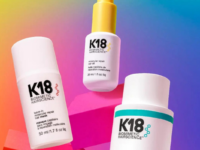 Unilever announced its commitment to ensure that all plastic packaging are 100 per cent recyclable, reusable or compostable by 2024.
Unilever announced its commitment to ensure that all plastic packaging are 100 per cent recyclable, reusable or compostable by 2024.
“Our plastic packaging plays a critical role in making our products appealing, safe and enjoyable for our consumers. Yet it is clear that if we want to continue to reap the benefits of this versatile material, we need to do much more as an industry to help ensure it is managed responsibly and efficiently post-consumer use,” Paul Polman, Unilever CEO said.
The global FMCG company committed to ensuring all of its plastic packaging is designed to be reusable, recyclable or compostable by 2025; renew its membership of the Ellen MacArthur Foundation for another three years; and endorse and support their New Plastics Economy initiative.
“By committing to ambitious circular economy goals for plastic packaging, Unilever is contributing to tangible system change and sends a strong signal to the entire fast-moving consumer goods industry. Combining upstream measures on design and materials with post-use strategies demonstrates the system-wide approach that is required to turn the New Plastics Economy into reality,” Ellen MacArthur Foundation said.
According to the Ellen MacArthur Foundation (EMF), only 14 per cent of the plastics that are used worldwide makes its way to recycling plants, while the rest (about 40 per cent) ends up in the landfill — while a third goes to the fragile ecosystems. It is foreseen by some that by 2050, there will be more plastic than fish in the world’s oceans.
“To address the challenge of ocean plastic waste we need to work on systemic solutions — ones which stop plastics entering our waterways in the first place. We hope these commitments will encourage others in the industry to make collective progress towards ensuring that all of our plastic packaging is fully recyclable and recycled,” Polman further added.
“We also need to work in partnership with governments and other stakeholders to support the development and scaling up of collection and reprocessing infrastructure which is so critical in the transition towards a circular economy. Ultimately, we want all of the industry’s plastic packaging to be fully circular.”
Architect and circular economy leader William McDonough also said the cradle to cradle redesign of packaging is one of the great global design challenges in the world today — similar to scaling renewable energy to address climate change.
“The optimization of packaging and plastics is so timely and important that all the people, communities and companies involved – suppliers, producers, retailers, customers and consumers – can work together now, with common values and purpose, to create and share beneficial value for generations to come,” according to McDonough.
Unilever said plastics should be managed efficiently and effectively, which is the key priority in achieving the Sustainable Development Goal 12 (Sustainable Consumption & Production) and, in doing so, shifting away from a “take-make-dispose” model of consumption to one which is fully circular.
They will publish the full “palette” of plastics materials used in its packaging by 2020 to help create a plastics protocol for the industry.
Unilever has already committed to reducing the weight of the packaging it uses this decade by one third by 2020, and increase its use of recycled plastic content in its packaging to at least 25 per cent by 2025 against a 2015 baseline, both as part of the Unilever sustainable living plan.















